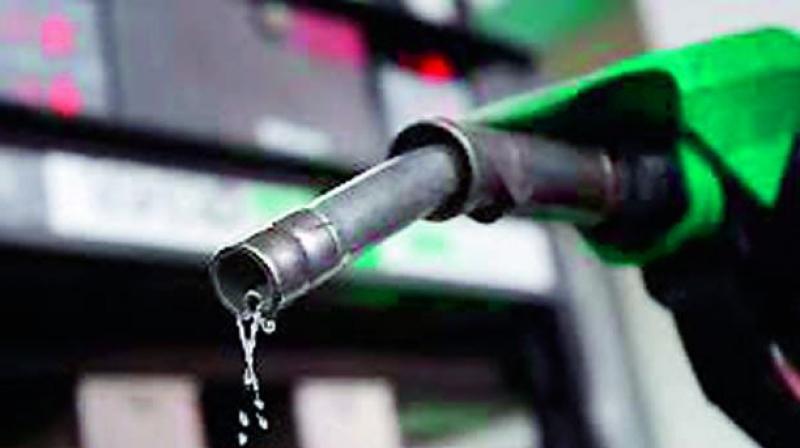While fuel prices rise, hopes plummet
Meanwhile, the poor continue to get poorer, and the middle-class are forced to identify priorities.

Inflation is unavoidable, and it has the sneaky ability to creep up on us when we’re not paying attention. When was the last time you checked just how much petrol you were getting in exchange for that Rs 500 note you casually handed out to the attendant? If you’re lucky enough to be in the bracket of people for whom an additional one or two rupees per litre isn’t a big deal, you probably haven’t even noticed just how much fuel and food prices have risen.
Meanwhile, the poor continue to get poorer, and the middle-class are forced to identify priorities, plan meticulous budgets, and do away with comforts to cut down expenses.
The people who have diligently been keeping track of fuel prices and their rising expenses over the past few years are all wondering when the promised “acche din” will finally arrive. The youth too seem to have taken quite a hit.
The problem is that we never question the government. We see the truth, we know the truth, but we still believe their lies. This is one of the biggest reasons why the Government of India is what it is – completely oblivious to society’s needs. It is a fictitious entity to me; every time I have tried reaching out to the government, in the midst of a crisis, I have realised that it is not there for me. I love travelling. But this hike in the price of petrol has deprived me of the opportunity to do that. Money has never been a constraint when it comes to travelling, until now. Every time I think of going out, my spirit is dampened at the thought of the hole that it will burn in my pocket.
— Shrey Gomes, a student
I live alone and my parents send me pocket money every month. Initially, I had planned a budget, but after the hike in petrol prices, I had to make sacrifices to continue to be able to sustain myself. Now, instead of four eggs, I eat only two for breakfast. I have stepped out of my comfort zone and started travelling in metros and in buses. I hate the clumsiness of it, but I have no choice because it’s getting too expensive.
— Ankit Priya, a UPSC aspirant
A year ago, people would ask for petrol in terms of a certain number of litres, but not anymore. I have not seen any change in business, it has remained the same after the price hike.
— Pradeep Kansara, owner of a petrol pump
I take the price hike to be a positive change even though I have had to cut down on food expenses to save money for petrol. Nobody asks for 1 litre of petrol, we buy a round-figure amount, like '100, or '150 worth. I think that with the hike in fuel prices, there is some hope of pollution levels dropping in the city and the country.
— Yash Chawla, presenter of a radio show
Five years ago, I expected the price of petrol to touch '100 per litre by 2018. The sale of fuel is a major source of income for the government. The money they earn will be used for the betterment of India as a whole. International rates are increasing steadily, and if they keep petrol prices low, the price of the dollar will become very high. I completely support the government.
— Yashwant Daga, an Amazon employee
Such price hikes are inevitable because of changes in global supply and the OPEC agreement, but the timing is wrong. It was implemented only after the Karnataka elections. The price of petrol should be the same as that of crude oil, but that doesn’t happen. The government is happily increasing the price of petrol with no consideration for the poor. Think about food delivery people, it’s nothing but bad news for them.
— Ashish Kulkarni, Economist
My workplace is located 20 km away from where I live. I am a fresher, and I receive a fairly small salary. A majority of it is spent on petrol as I travel by a two-wheeler. Now, either I must use public transport, which can be unsafe, or I must quit my job. I cannot spend more than half my income on travel expenses.
— Shifa Aleem, a software employee

